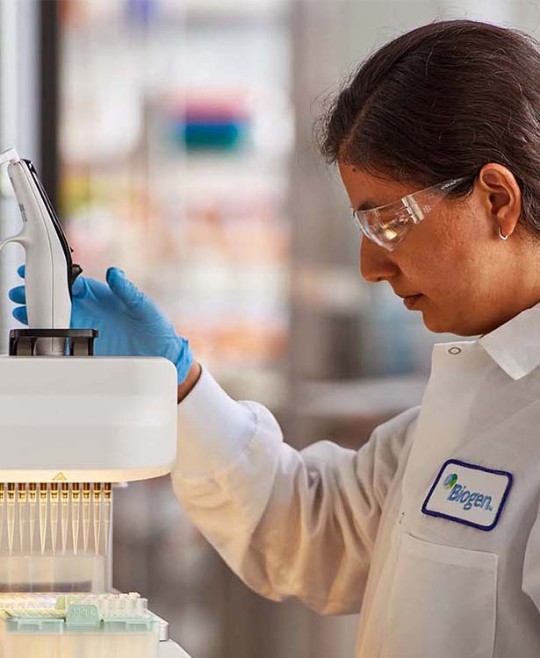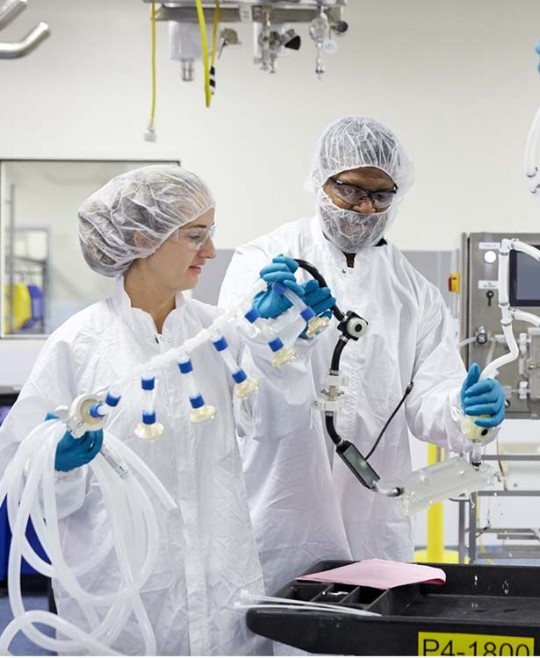Science & Innovation

We work in disease areas with some of the greatest unmet need. We work relentlessly, knowing that bold new possibilities await discovery. As a leading global biotechnology company, we work toward those once-in-a-lifetime moments that could become a historic point in our pursuit of innovative treatments.
Disease Areas
The potential to transform the lives of patients drives us at Biogen.
Our world-class neurology research and development organization is pushing toward novel approaches for previously intractable neurodegenerative conditions such as Alzheimer’s disease.
Learn more
For over a decade, Biogen has been committed to advancing ALS research to provide a deeper understanding of all forms of this devastating disease, which currently impacts an estimated 352,000 people worldwide.
Learn more
Biogen is proud to leverage our expertise in rare diseases to build on the outstanding work Reata has done to launch the first and only U.S. Food and Drug Administration (FDA) and European Commission (EC) approved treatment for FA in adults and adolescents aged 16 years and older. Biogen will continue our commitment and capabilities to help bring this treatment to more patients living with this devastating disease.
Learn more
Through our acquisition of Human Immunology Biosciences (HI-Bio) in July 2024, Biogen officially entered the nephrology space with a portfolio of investigational drugs that target immune-mediated diseases with serious unmet need. Biogen plans to leverage our expertise in immunology, clinical development, and commercialization capabilities to bring these potential new options to patients with these conditions.
Learn more
As part of our longstanding efforts in neuroimmunology, we are utilizing our deep expertise in multiple sclerosis, our knowledge of immunological pathways, and our scientific and development synergies to positively impact the lives of people living with serious autoimmune diseases such as lupus.
Learn more
Biogen has pioneered the development of multiple sclerosis treatments for more than 25 years. We continue to innovate to advance MS treatment and improve outcomes for patients. Our research is focused on potentially transformative therapies, including the potential repair of the damage caused by MS. Our ongoing research into neurodegeneration and nerve repair will help pioneer new therapeutic solutions that may bring us closer to a cure for MS.
Learn more
We are committed to advancing innovative research on the pathophysiology of mental health conditions. We are working to advance screening and treatment rates for postpartum depression and pioneer much-needed solutions to improve mental health outcomes.
Learn more
Biogen is dedicated to enhancing the lives of those with SMA and their families through ongoing research, removing barriers to access and providing support programs. In December 2017, Biogen launched a new collaboration with Ionis to identify new therapeutic options — specifically, new antisense oligonucleotide (ASO) candidates, which are designed to treat SMA — for individuals afflicted with the debilitating disease.



